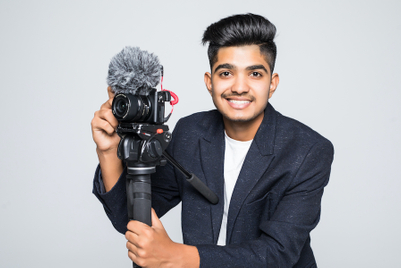The continuous rise of digital and social media, armed with new tools and new forms of marketing, which are being invented and re-invented every day, has not only made life difficult for managers and executives engaged in branding, but also for the brand’s consumers.
On one hand, managers are unsure of the communication medium, the form of communication and the engagement level to be maintained with different categories of stakeholders. On the other hand, consumers are unsure of what communication to believe and, whether and how much to engage with a brand. Such an ecosystem is bound to destroy the very fabric upon which campaigns and marketing communications are based. When customers and other stakeholders doubt the authenticity of their experience and engagement with a brand, they are bound to disavow the brand’s purpose and promises. Such customers and other stakeholders can become ‘brand terrorists’ and can potentially cause irrevocable damage to the brand’s image and reputation.
What then is a possible way out?
Some good old-fashioned brand advocacy coupled with authenticity!
Brand advocacy stems from a ‘deep-seated’ alignment with the brand. It can be conceived as favourable communication about a brand, the recommendation of a brand to others, or the defence of the brand when it is attacked – most visible in the case of person/people brands (e.g., celebrities). Consumers who truly identify with a brand are not just willing to spread positive word-of-mouth, but even defend the brand when it is attacked. These consumers are the strongest proponents and evangelists of the brand.
In the World of fake and paid news, viral marketing, influencer marketing, affiliate marketing and the likes, the consumer is left with a plethora of choices not knowing what is true and what is not. To remain relevant, a brand needs to be authentic, which essentially means it (i.e., the entity behind it and its key actors) should practice what it preaches. It is not just about projecting authenticity (which anyways most brands are good at); rather, it is about living the brand’s purpose. If your brand’s purpose revolves around the concept of ‘equality’ or ‘doing good for the environment’ or any other cause, the brand actors and the entity behind the brand should be living it and not just projecting it. Authenticity is an ‘affect construct’ which means that it is something that an individual/group feels. When there is alignment between what a brand projects, its enactment by the brand actors and the entity behind the brand and, its perception, the authenticity of the brand is established. It is this authenticity which builds a strong connection between the brand and its audience thus, creating brand advocates. The advocates of a brand are not paid to spread positive word-of-mouth or defend the brand when it is attacked; they do so because they strongly identify with the brand, are aligned to its purpose, and feel that the brand is an extension of their idea of ‘self’. They are more like devotees and zealots – a brand’s ideal and best campaigners.
And there’s more – nurturing brand advocates costs less, is more focused and is ‘under the radar’ (unnoticeable) compared to marketing blitzkriegs. Branding/Marketing/PR agencies should work with brand custodians (Managers, senior executives etc.) to help identify and nurture brand advocates.
(Piyush Pranjal is an PhD candidate, IIM Ranchi, Soumya Sarkar is the Asst. Professor – Marketing, IIM Ranchi and Madhuri Mukherjee is an HR professional.
Image by Mari Ana from Pixabay




.jpg&h=268&w=401&q=100&v=20250320&c=1)

.jpg&h=268&w=401&q=100&v=20250320&c=1)

.jpeg&h=268&w=401&q=100&v=20250320&c=1)
.png&h=268&w=401&q=100&v=20250320&c=1)
.png&h=268&w=401&q=100&v=20250320&c=1)

